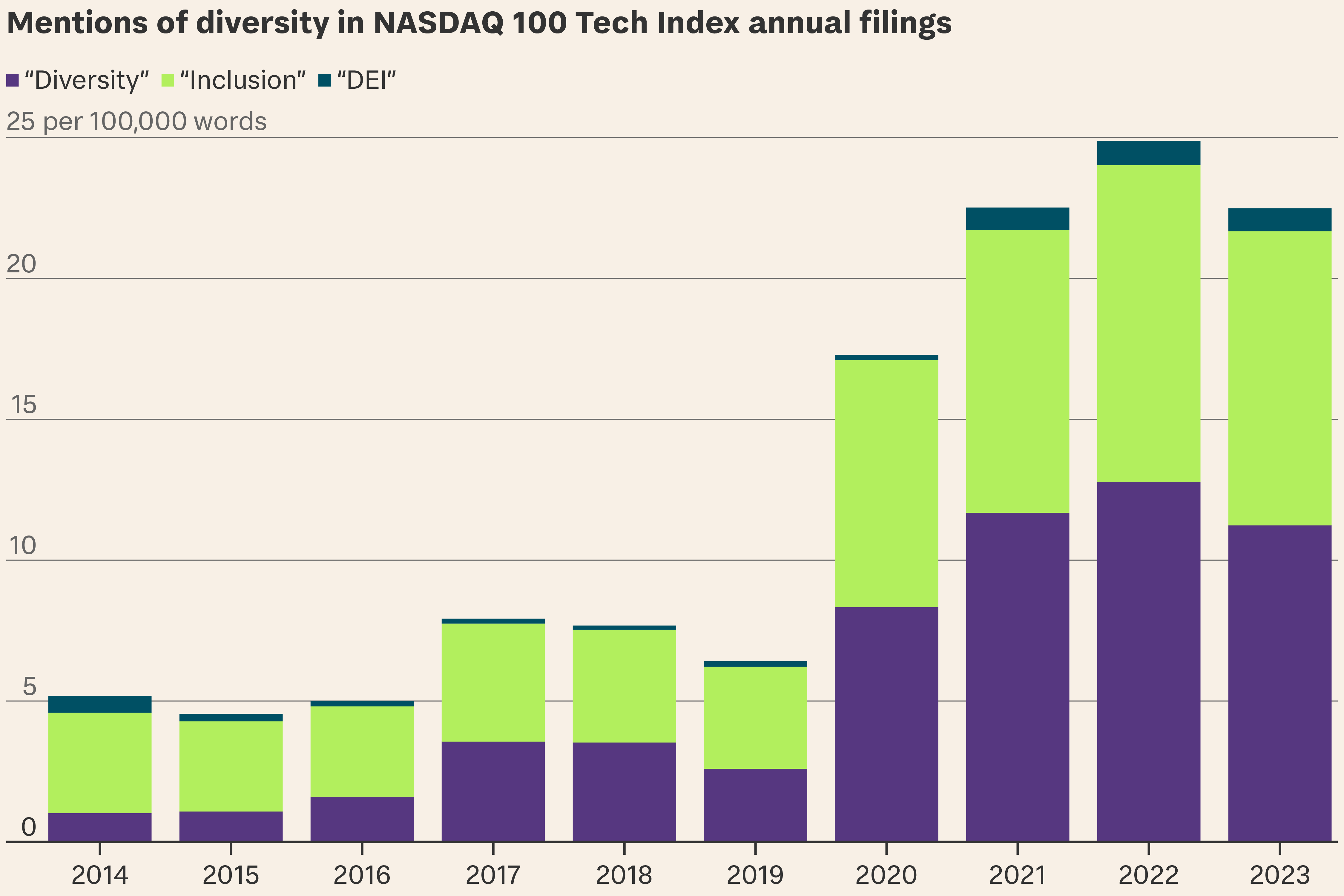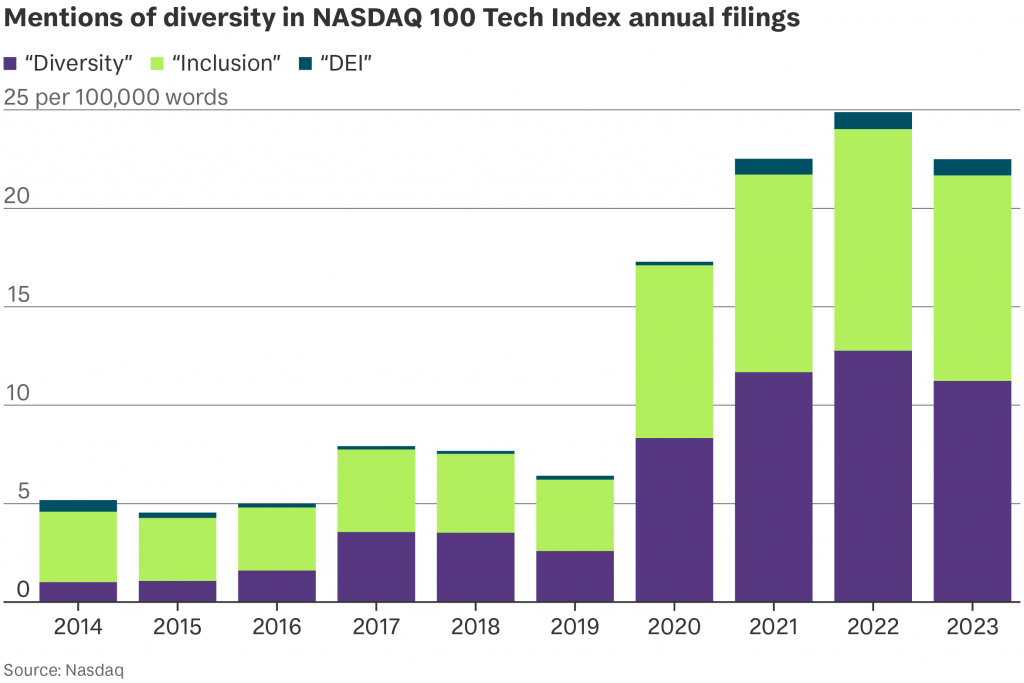
In addition to political and legal risks, boards are facing demands from shareholders to drop DEI.
Republicans have attacked Kamala Harris for being a “DEI vice president”, suggesting her race and gender, rather than experience, led to her coronation as the de facto Democratic nominee.
So what? In the run-up to November, the rumbling backlash against diversity, equity and inclusion (DEI) has become a cacophony with conservative legal groups, asset managers and – increasingly – politicians, assailing organisations that have introduced diversity policies. Recently, DEI programmes have been blamed for
- causing the Crowdstrike global IT outage;
- technical problems at Boeing’s fuselage supplier; and
- the failure of the US Secret Service to stop the assassination attempt on Donald Trump.
Quiet quitting. A Tortoise analysis of SEC filings by Nasdaq companies highlights how two key events have altered corporate America’s approach to DEI – at least in terms of how much they talk about it.

- The first is the killing of George Floyd in 2020, after which thousands of organisations vowed to prioritise the inclusion of minorities – demonstrated by the rise in average mentions of “diversity” in company reports.
- The second is the US Supreme Court decision in 2023 to end affirmative action in higher education. This gave legal cover for right-wing attacks on institutions and firms that set diversity targets.
Tech companies, despite their popularity with investors, appear wary of the backlash. For example, mentions of “diversity” in the annual report for ASML, the semiconductor fab-maker, dropped 12 per cent between 2022 and 2023.
Trouble and Strive. In addition to political and legal risks, boards are facing demands from shareholders to drop DEI. Strive, the anti-ESG asset manager founded by Vivek Ramaswamy, the former presidential contender who is now a Trump ally, has been particularly effective in this regard. Twelve companies including Motorola and AMD have recently removed diversity targets from executive bonus plans in response to pressure from the fund. An analysis by ESGauge found 66 per cent of companies linked DEI to executive pay this year, down from 75 per cent in 2023.
DEI-vergence. Has the backlash reached Britain? “[In the UK] it’s much more subtle… I’m hearing more about ‘inclusion’, but not as much about ‘diversity’. You’ve got to have both,” says Moni Mannings, portfolio NED and founder of Empowering People of Colour.
In Britain’s top 150 boardrooms, the pace of change has slowed since the spike in DEI awareness following George Floyd’s death. According to the 2023 UK Spencer Stuart Board Index:
- there was a 44 per cent drop in newly appointed non-executive directors with a minority ethnic background between 2022 and 2023.
- on 60 boards all four senior positions (chair, senior independent director, CEO and CFO) were occupied by men.
- only 18 boards have reached gender parity.
Some companies are still taking a “one and done approach” to board representation. But there are hints from the new government that DEI will be reprioritised: the King’s Speech announced mandatory ethnicity and disability pay gap reporting for companies with over 250 employees.
The business case(s). Organisations in the top quartile for ethnic representation at a senior level are 39 per cent more likely than others to outperform their competitors, according to a 2023 McKinsey report. That research has since been heavily disputed – and anyway misses the point. Understanding your customer base, brand reputation, jurisdictional expertise and cultural sensitivity where market access depends on it – these are all benefits of DEI that tend to evade one-off data snapshots.
What’s more. “If you want to have legitimacy as a major organisation in our society, you have to accept you’ll be measured on how you reflect that society,” says Mannings. The same might be said for America’s next president.











